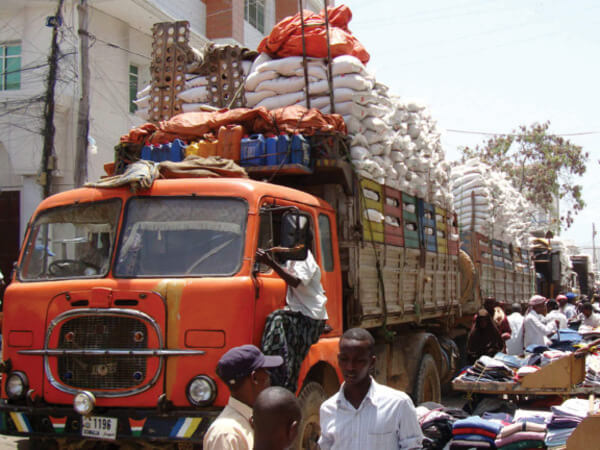Nigeria’s food crisis has once again taken centre stage, with Abubakar Kyari, the Minister of Agriculture and Food Security, revealing that the nation spends over $10 billion every year importing staples like rice, wheat, sugar and fish.
It is a paradox: a country blessed with 85 million hectares of arable land spends billions on food that could be produced within its borders. This dependence weakens the economy but leaves over 106 million Nigerians trapped in extreme poverty, vulnerable to hunger and battered by the daily rise in food prices.
But buried beneath this crisis are seeds of possibility. Across the country, small but promising solutions are sprouting from new financing models to mechanisation platforms, hinting that Nigeria’s story doesn’t have to end with food insecurity and import dependency.
One such solution is innovative financing. For decades, traditional banks suffocated farmers with high-interest loans and rigid repayment schedules, discouraging investment in large-scale production.
Now, new models like pay-at-harvest insurance and revenue sharing are rewriting the script. In parts of northern Nigeria, cooperatives are pooling resources to buy farm equipment and seeds collectively, spreading costs and boosting yields.
These experiments are improving productivity and building trust, encouraging mechanisation and showing that when financing aligns with farms and farmers, the results can be transformative.
If scaled through public-private partnerships, such models could give millions of grassroots farmers, the backbone of Nigeria’s food system, the financial freedom to expand.
Mechanisation is also rewriting the narrative. Nigeria’s tractor density remains one of the lowest in the world, but creative platforms like Hello Tractor—also referred to as the “Uber for tractors”—are closing the gap by linking farmers to tractor owners through mobile apps.
Young farmers, with smartphones, can now book machinery on demand, reducing reliance on back-breaking hand tools and boosting output.
Beyond tractors, climate-smart innovations like drip irrigation and drought-resistant seeds are already being used in places like Kaduna and Kano, helping farmers adapt to erratic weather and desertification.
When combined with stronger extension services to train farmers, these tools can shift agriculture from survival level to commercial productivity.
Another bright spot lies in the fight against post-harvest losses, one of Nigeria’s silent food killers. Every year, tonnes of tomatoes, grains and fish rot before they reach the market due to poor storage and transport.
But solutions are emerging: cold storage hubs in Lagos and Kano are now helping farmers preserve perishable goods, while new feeder roads in rural areas are linking farms to markets with greater ease.
Local processing facilities, such as rice mills and cocoa grinding plants, are also beginning to transform raw produce into finished goods, reducing waste, creating jobs and slashing imports.
These developments hint at what is possible when infrastructure and value addition are prioritised. Nigeria not only feeds itself but begins to compete globally.
Livestock and fisheries also hold untapped potential. Nigeria’s cattle population is among the largest in Africa, yet dairy and beef production remain woefully underdeveloped. Recent partnerships with Brazil to modernise ranching practices promise to ease herder-farmer conflicts while boosting milk yields.
With 853 kilometres of coastline and expansive inland waterways, Nigeria could be a fisheries powerhouse, but local fish farmers remain under-equipped.
In the Niger Delta, some communities are already engaging in aquaculture, producing catfish and tilapia for local consumption. With proper financing, modern equipment, and government backing, these ventures could transform fish from a luxury to an affordable staple while saving the country billions in imports.
Nigeria’s hardly an isolated example. Around the world, countries with fewer resources and harsher conditions, like Israel and the Netherlands, have built thriving agricultural systems through innovation, research and farmer-first policies.
Nigeria’s challenge is one of scale and political will. It behoves the government, private sector and communities to amplify these efforts until every household is impacted.
If embraced with urgency and vision, agriculture can move from being Nigeria’s greatest missed opportunity to its greatest triumph, feeding its people, diversifying its economy, and securing a prosperous future.
Nigeria's food crisis is underscored by a $10 billion annual expenditure on importing staples despite having 85 million hectares of arable land. This reliance not only weakens the economy but also leaves over 106 million Nigerians in extreme poverty. However, innovative solutions are emerging, such as new financing models like pay-at-harvest insurance, which help mitigate traditional banking challenges for farmers. Cooperatives in northern Nigeria enhance productivity by pooling resources for equipment and seeds. Mechanisation platforms like Hello Tractor and climate-smart technologies further aid in increasing agricultural output and adapting to environmental challenges.
Efforts to reduce post-harvest losses through cold storage hubs and improved feeder roads are beginning to make an impact, as are local processing facilities converting raw produce into finished goods. There are untapped opportunities in livestock and fisheries, with partnerships aimed at modernizing ranching and promoting aquaculture in regions like the Niger Delta. Lessons from successful agricultural systems in countries like Israel and the Netherlands illustrate that Nigeria's challenges can be overcome with collective action from government, private sectors, and communities. With urgent and visionary efforts, agriculture could transform from Nigeria's missed opportunity to its greatest triumph, boosting self-sufficiency and economic diversification.






